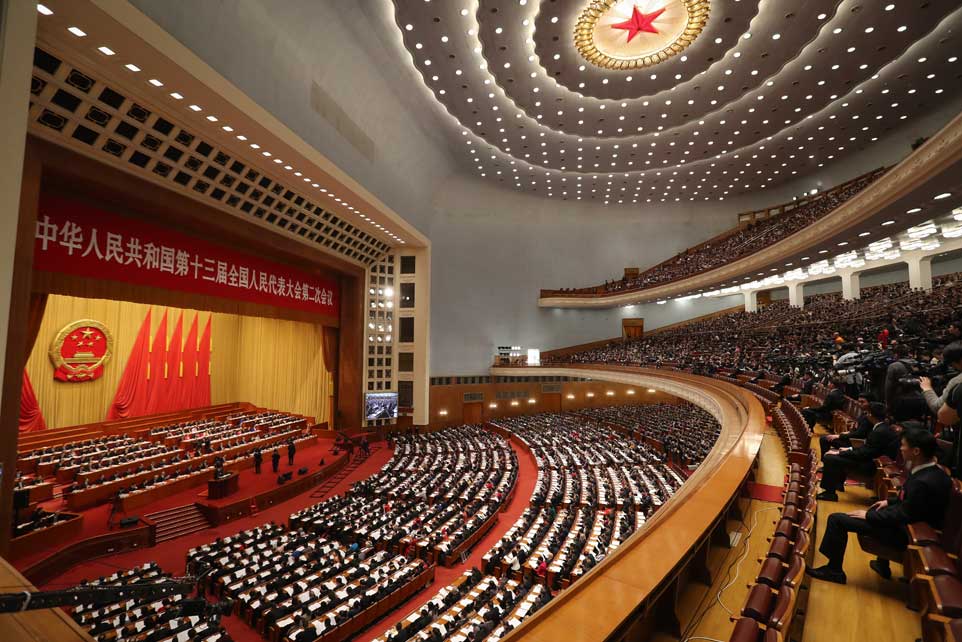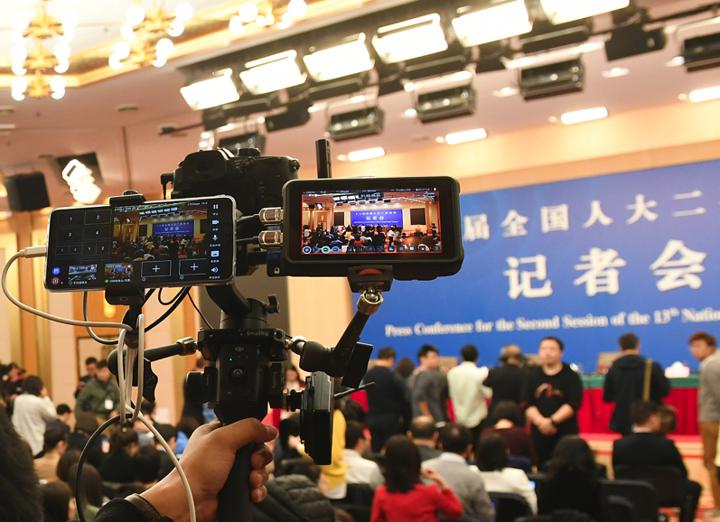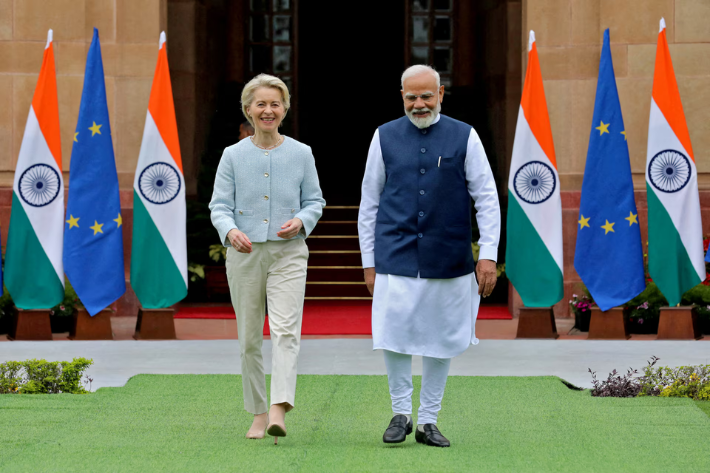The city of Beijing is busily preparing for the congressional season beginning later this month. The delayed annual sessions of the Chinese parliament and top political advisory body, aka “two sessions,” will finally be convened in the aftermath of the Covid-19 scourge, which upended the country’s politics this spring.
Deputies of the National People’s Congress from all provinces, municipalities and autonomous regions nationwide will congregate next Friday in the Great Hall of the People to be briefed on the work of the central government by Premier Li Keqiang. Representatives of the Chinese People’s Political Consultative Conference will meet a day earlier in the same Tiananmen Square venue to hear a report by its chairman.
All eyes will be on the officials and delegates from the central megacity of Wuhan and the rest of Hubei province, the ground zero of the novel coronavirus contagion that has swept the globe. They will likely reflect on their response to the health calamity, and answer questions, with hindsight, on whether they should have acted on the alerts earlier and not smothered whistleblowers.
But it appears that reporters, especially those from overseas, will not be allowed too much liberty to pursue delegates for scoops or throw questions at them during press conferences, as the quota and available permits for them have been slashed under the pretext of post-pandemic control. There will be no repeat of the usual sight of reporters mobbing ministers and personages in a scrum as seen in past two sessions.
The latest news from the All-China Journalists’ Association is that only those with the “big four” state media outlets – Xinhua News Agency, People’s Daily, China National Radio and China Central Television – will be given “hall passes” to access all rooms and breakout panel discussions inside the Great Hall of the People.
-
![]()
Fewer journalists will be allowed into the venue as organizers aim to ensure zero risk of cross-infection. Photo: WeChat
All proceedings, including press conferences, will be streamlined and held via video if possible. The number of journalists, photographers and cameramen who can attend the premier’s press conference, to be held upon the conclusion of the two sessions, will be more than halved to half of the seating capacity of the Golden Foyer. Those media organizations who cannot dispatch reporters, like those from overseas whose work may be hobbled by the 14-day quarantine order, may have to reply on pool feeds and pool spray images to cover the PNC plenary meeting on May 22 and the premier’s question-and-answer session.
Deep cleaning
Aides of state leaders, health experts and Beijing’s municipal officials have reportedly worked out guidelines to eliminate any risk of the virus creeping into the Great Hall of the People, with one focus on the deep cleaning and disinfection of the state building’s air-conditioning systems. That is because President Xi Jinping and other party and state leaders are set to preside over the two sessions’ plenary meetings and sit in the same hall with all the 5,000-plus NPC and CPPCC deputies for hours for the biggest annual ritual of Chinese politics, an event that is mocked by some critics as a “hurrah ceremony” as Beijing seeks to restore normalcy. Another thing to watch is whether these attendees will all wear masks.
But risks are still lurking beneath the surface of a remission of the epidemic.
The specter of Covid-19 has returned to haunt Wuhan since this week with sporadic cases reported there. As a precaution, it is said that Wuhan delegates will stay at a separate hotel requisitioned by Beijing’s municipal government as a quarantine facility and they will not mingle with others, other than when attending plenary meetings.
Still, Xi or Li may attend a special panel discussion with representatives from Wuhan and Hubei to shore up sentiments and unveil more policies to reboot the battered economy there.
Those from the three northeastern provinces – Heilongjiang, Jilin and Liaoning where local outbreaks have been spiraling out of control – will also limit their interactions with anyone else. Heilongjiang’s provincial capital Harbin has been placed under a semi-lockdown following a steady increase in cases when Chinese expats fled the disease in Russia, and another city in Jilin along the border with North Korea is also sealed off.
A Xinhua reporter told Asia Times that deputies from other provinces would first have to go through 14 days of home quarantine, report body temperature changes and be tested for the virus, before they could fly into Beijing next week.
The biggest takeaway from the two sessions can be Beijing’s revised GDP growth target. It remains to be seen how resigned Beijing is to the trend of stalled economic expansion, like by halving the annual target to 3%, or whether it will scrap this year’s goal altogether.
Ma Jun, an economist who sits on the People’s Bank of China’s monetary policy committee, told reporters last week that with the two sessions delayed from March to May, it no longer made sense to set a GDP growth target for the year when five months had already passed.

























